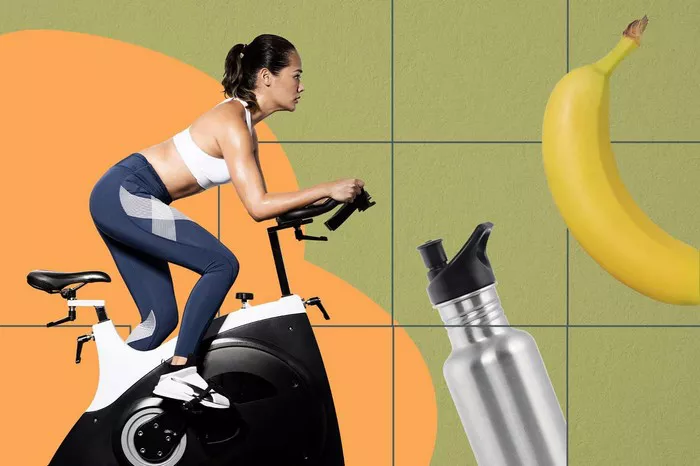When it comes to weight loss, many people search for effective and enjoyable ways to shed extra pounds. Among the various forms of exercise, bicycle riding is a fantastic option for weight loss. Not only is it a low-impact workout that engages multiple muscle groups, but it also offers a fun, flexible, and efficient way to burn calories and improve overall fitness. Let’s dive deeper into how cycling can help you achieve your weight loss goals and how to make it part of a sustainable, long-term routine.
SEE ASLO: What Is Threshold Power in Cycling
1.Is Bicycle Riding Good for Weight Loss?
Yes, bicycle riding is a good form of exercise for weight loss.
There are several reasons why cycling is highly effective for weight loss:
Cycling burns calories, especially during intense rides. Depending on the intensity of your ride and the terrain, you can burn a significant number of calories. This makes it a great way to create a calorie deficit, which is essential for weight loss.
It’s a full-body workout. While cycling mainly targets the lower body, particularly the quadriceps, hamstrings, and calves, it also engages the core and even the arms for balance and control. This full-body engagement leads to better muscle toning and fat burning.
It’s relatively low-impact. Cycling places less stress on the joints compared to other forms of exercise, such as running. This makes it accessible for people of varying fitness levels, including those with joint issues or people recovering from injury.
2. Weight Loss and Cycling: Key Information
Calorie Burn
The number of calories you burn while cycling depends on factors like your weight, intensity, speed, and terrain. Here’s a general breakdown of the average calories burned per hour based on different cycling intensities:
| tensity Level | Approximate Calories Burned per Hour (150-lb Person) | Approximate Calories Burned per Hour (200-lb Person) |
| Casual (under 12 mph) | 240-300 | 320-400 |
| Moderate (12-14 mph) | 500-600 | 660-800 |
| Intense (14-16 mph) | 600-750 | 800-1,000 |
| Vigorous (16-20 mph) | 850-1,000 | 1,100-1,300 |
Frequency and Duration
To see meaningful results in weight loss, consistency is key. For effective weight loss through cycling, aim for:
Frequency: Ride at least 3 to 5 times a week.
Duration: Try to cycle for at least 30 to 60 minutes per session.
This combination of regularity and duration will help create a calorie deficit, which is essential for weight loss. Incorporating both longer, steady-paced rides and shorter, high-intensity rides can optimize fat burning.
Intensity Levels
Cycling offers flexibility in intensity, making it suitable for various fitness levels. Here’s how different cycling intensities impact calorie burn:
Casual Cycling: Ideal for beginners or those looking for an easy recovery ride. While calorie burn is lower, casual cycling helps build endurance and can be combined with more intense sessions.
Moderate Cycling: This is where the fat-burning process really kicks in.
Riding at a moderate pace for extended periods helps burn a consistent number of calories and boosts cardiovascular fitness.
Intense Cycling: High-intensity cycling, such as interval training or hill climbing, is highly effective for burning fat quickly. Intense rides not only increase calorie expenditure during the ride but also boost your metabolism post-exercise.
Combination with Other Activities
For optimal weight loss, cycling should be paired with:
A balanced diet: Consuming a calorie deficit is essential for weight loss. Focus on eating whole foods, lean proteins, vegetables, and healthy fats to fuel your rides.
Strength training: Adding strength training to your routine can enhance muscle mass, which boosts your metabolism and helps in fat burning.
Other forms of cardio: You can mix cycling with other cardiovascular exercises such as running, swimming, or walking to avoid plateauing and keep your body challenged.
4. Practical Advice for Cycling Success
Choosing the Right Bike
Road bikes: Best for long-distance rides on smooth surfaces, offering speed and efficiency.
Mountain bikes: Designed for off-road cycling, with wider tires and suspension systems for tackling rough terrain.
Hybrid bikes: A versatile option that combines the features of road and mountain bikes, making them great for both city streets and light off-road trails.
Stationary bikes: For those who prefer indoor cycling or want to cycle regardless of the weather.
Finding a Cycling Route
To make cycling enjoyable, finding the right route is key. Here are some tips:
Safety first: Look for bike-friendly paths, especially if you’re riding in urban areas. Dedicated bike lanes and trails are the safest options.
Scenic routes: Explore nature by cycling through parks, along rivers, or on coastal roads. Beautiful surroundings can make your ride more pleasurable.
Consider terrain: Whether you prefer flat roads for a relaxed ride or hills for an intense workout, plan your route accordingly.
Gear Recommendations
Proper gear not only makes your cycling experience more comfortable but also keeps you safe:
Helmet: Always wear a helmet to protect your head in case of an accident.
Water bottle: Hydration is crucial, especially during longer rides. Use a water bottle holder for easy access.
Comfortable clothing: Wear moisture-wicking, breathable clothing.
Padded shorts can reduce saddle soreness, and bright colors or reflective gear improve visibility to motorists.
Ready to embark on your weight loss journey? Start cycling today! Grab your bike, find a scenic route, and hit the road. Share your progress and experiences with others, and remember, consistency is key to success.
By integrating cycling into your fitness routine and following the tips provided, you’ll be well on your way to reaching your weight loss goals while enjoying the journey.

